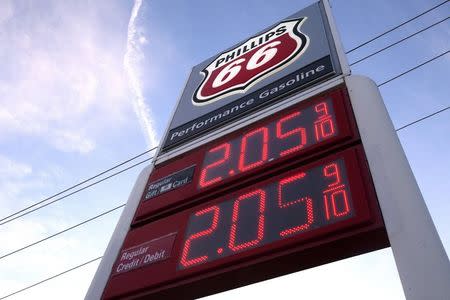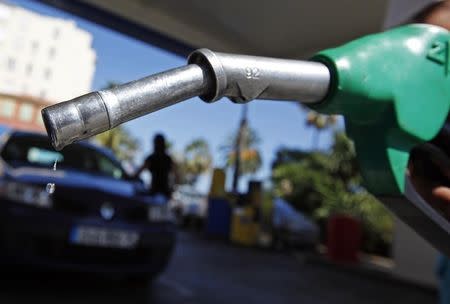Oil surges in about-face as some bet sub-$60 Brent won't last
By Barani Krishnan NEW YORK (Reuters) - World oil prices burst nearly 5 percent higher on Wednesday as weeks of nearly non-stop selling abruptly reversed course, with traders betting that a failure to break below key chart support levels signalled a long rout may be running out. The sudden surge came after weekly oil data showed a big build in crude stockpiles at Cushing. When prices failed to make a new low following the bearish data, speculators raced to buy up contracts or take profits on short positions, setting off a frenzy of buying that took on its own momentum. "I think the market, after its freefall, is looking for any reason to spike up. You're going to see volatility here," said Daniel Flynn, energy analyst at Chicago's Price Futures Group. Brent for February delivery was up $1.05 at $61.06 a barrel by 2:37 p.m. EST, after hitting a session high of $63.40. Brent's next technical level was at $63.50, or 10 cents above Wednesday's peak, one trader said. U.S. crude's front-month contract settled up 54 cents, or 1 percent, at $56.47 after a climbing earlier to $58.98. The biggest slide in oil prices since the 2008 financial crisis had accelerated after OPEC met in November, when Gulf producers resisted calls to curb output. The plunge has left market-watchers seeking a bottom, and unable to find one. The latest spike has given buyers seeking a bottom a potential point at which to purchase crude. It remains to be seen whether the biggest rally in 2-1/2 months is a dead-cat bounce or a definitive turning point after a six-month slide that has halved prices. With OPEC ministers saying this week they are in no hurry to cut output, many see new lows ahead, although the steep drop has opened up some short-term opportunities for chart-based traders. "It's a recipe for technical buying," said John Saucer of Mobius Risk Group in Houston. Brent had lost more 10 percent of its value in the previous five sessions, falling below $60 a barrel but holding well above its next major support of $55. The sudden spike caught traders and analysts by surprise, and many speculated on causes that ranged from the surge in the value of the oversold Russian rouble to the U.S. decision to resume diplomatic relations with Cuba. "I think it was triggered by some short-covering," said Saucer. "And once it gets going it feeds upon itself.” (Additional reporting by Robert Gibbons and Jessica Resnick-Ault in New York, Libby George in London and Seng Li Peng in Singapore; Editing by Alden Bentley)

 Yahoo News
Yahoo News 

